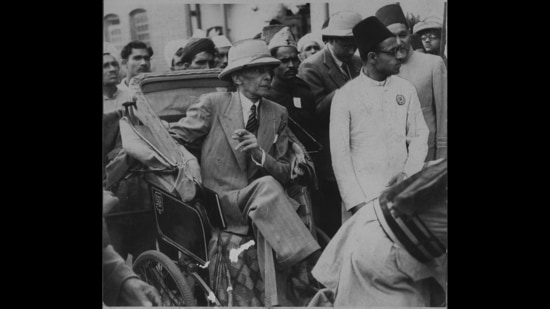Reassessing Jinnah’s stand on the Partition
In Jinnah: His Successes, Failures and Role in History, historian Ishtiaq Ahmed writes that Jinnah was never interested in a power-sharing deal with the Congress. In fact, he was obsessed with having India partitioned
Perhaps because it was published during the dark days of the pandemic, Ishtiaq Ahmed’s monumental biography of Mohammad Ali Jinnah hasn’t got the attention it deserves. Over 800 pages long and crammed full of references to Jinnah’s speeches, statements and messages, it questions, if not debunks, many widely held beliefs. For us in India, perhaps the two most important are the claims Jinnah intended the 1940 Lahore Resolution’s call for Partition only as a bargaining chip and that his August 11, 1947 speech to the Constituent Assembly is proof he wanted Pakistan to be a secular State. Ahmed raises deep and convincing doubts about both.

“Jinnah never, even once, showed any interest in a united India and in a power-sharing deal with Hindus and Muslims as equal nations sharing power at the Centre,” asserts Ahmed in Jinnah: His Successes, Failures and Role in History. Then, in a full frontal attack on Ayesha Jalal, who first claimed Partition was just a bargaining chip, he adds: “Jalal omits all those speeches, statements and messages where ad infinitum he reiterates that the Lahore Resolution means the division of India into Hindustan and Pakistan.”
The proof seems overwhelming. On November 23, 1940, Jinnah said: “It’s not a counter for bargaining”. On March 2, 1941: “[Pakistan] is a matter of life and death to the musalmans and it’s not a counter for bargaining”. On April 3, 1942: “Our firm determination and our only goal is one – Pakistan, Pakistan, Pakistan”. As Ahmed sums up: “Jinnah never hinted, even obliquely, that he was prepared to agree to a power-sharing deal with the Congress.”
In fact, Ahmed goes further. He says, “Jinnah was obsessed with having India partitioned”. Again, he seems to be able to prove this. On March 30, 1941, in Kanpur, Jinnah said he was prepared to sacrifice the 20 million Muslims who would be left behind in India “to liberate” the 70 million in a majority in what became Pakistan. On April 14, 1941, Jinnah spoke in support of Dravidastan. He also said he would support a Sikh State. But Jinnah went even further. “He tried to woo even Hindu-majority princely states ruled by Hindu maharajas to join Pakistan. Such an irrational approach derived from his basic political goal: To bring about the division of India and get as much territory as possible out of India for Pakistan.”
Indeed, Ahmed expresses surprise that historians can believe the Lahore Resolution was simply a bargaining chip. Jinnah’s speech a day earlier made clear it wasn’t. “Muslims are a nation according to any definition of nation, and they must have their homelands, their territory and their state.”
On the August 11, 1947 speech, Ahmed has an interesting, if less well-proven, interpretation. He doesn’t believe it affirms Jinnah’s commitment to secularism. Instead, he says: “It is imperative to underline that its primary aim and purpose was to convince the Indian government that the minorities would be safe and have equal rights in Pakistan with a view to convincing the Indian government not to expel the 35 million Muslims who were to remain in India.”
To bolster his point, Ahmed adds: “If Jinnah wanted Pakistan to emulate Turkey, he should have mentioned it explicitly. The term secularism is missing in his speech and that too is a major omission if he wanted a conceptual transformation to take place.”
Finally, the fact the speech was suppressed is used by Ahmed as corroboration. Dismissing the belief this was to erase Jinnah’s commitment to secularism, Ahmed writes: “To believe his speech was suppressed against his will is preposterous … more probable was that Jinnah and his advisors decided not to publicise it because it was meant primarily for the Indian government and leaders.”
Now, I’m not a historian so I won’t judge the validity of Ahmed’s re-interpretations. But they definitely need to be better known. A debate around them would be fascinating. With the dark clouds of Covid-19 parting, perhaps this is the moment for their day in the sun.
Karan Thapar is the author of Devil’s Advocate: The Untold StoryThe views expressed are personal
All Access.
One Subscription.
Get 360° coverage—from daily headlines
to 100 year archives.



HT App & Website







